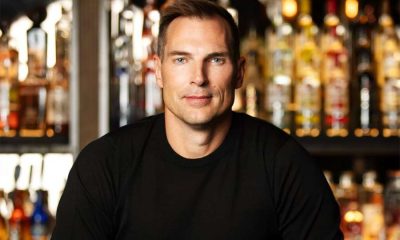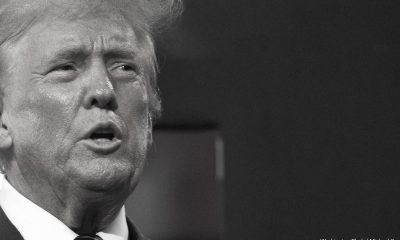News
Andy Vélez, a seminal New York AIDS and Latino Queer activist dies at 80
His advocacy work improved drug access and civil rights for people living with HIV
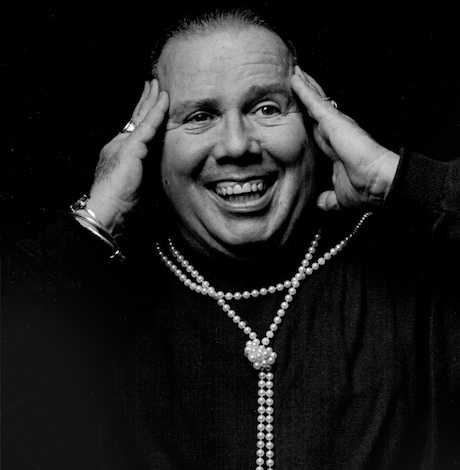
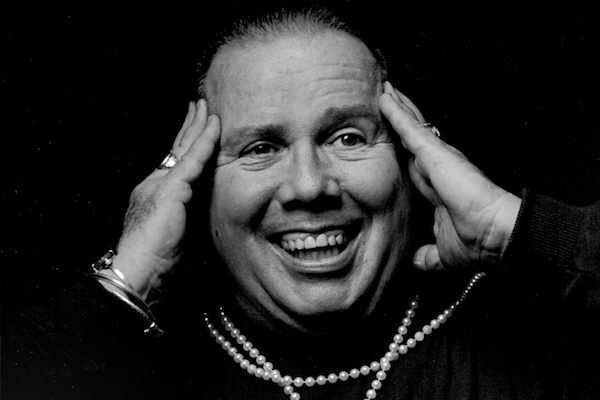
Andy Vélez, an internationally prominent AIDS activist, whose three decades of advocacy work resulted in improved drug access and civil rights for people living with HIV, especially in the Latino community, died on May 14, 2019 at Mt. Sinai Beth Israel Hospital in Manhattan. He was 80.
His sons Ben and Abe Vélez said the cause of death was complications arising from a severe fall in his Greenwich Village building in April.
Until his recent accident and despite several health challenges, Vélez had remained consistently active in the AIDS and social justice communities, taking part in protests for ACT UP and Rise and Resist. Vélez was a seminal member of ACT UP, joining the group in 1987, its first year of activity, and played a prominent role in its most notorious demonstrations over the past 32 years.
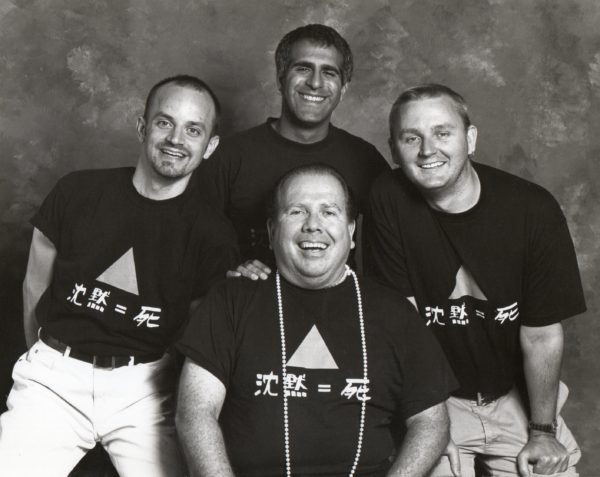
Vélez was born on March 9, 1939 in the Bronx to Ramon Vélez and the former Dorothy Solomon. The family, including siblings Eugene and Raymond (“Al”), soon relocated to Aguadilla, Puerto Rico, where they lived a few years before returning to the Bronx. Vélez graduated from William Howard Taft High School in 1955 at age 16. He attended City College for a brief time, but interrupted his studies when he left home. Years later, after attending night school, Vélez would formally graduate.
Vélez earned a Master’s degree in psychoanalysis in 1976 and worked with the Center for Modern Psychoanalytic Studies under Dr. Phyllis Meadow in the Village. He maintained his own therapy practice for two decades. Vélez had initially explored psychoanalysis for personal reasons, suspecting that he was homosexual. In 1964, he was entrapped by an undercover policeman in a Park Avenue South bar. Vélez spent the night in the jail facility known as The Tombs, a traumatizing experience that would provide the impetus for his activism. Vélez lost his position at the Housing Authority when his boss learned of his arrest. He received a suspended sentence of six months. But when Vélez pushed back legally with the help of a progressive lawyer, his conviction was later reversed.
While he initially hoped to become an actor, and appeared in several off-Broadway productions in the late 1950s and early 1960s, Vélez found success in other careers. He entered book publishing in 1969. Over the course of 16 years he worked his way up to the position of president of the prominent Frederick Ungar Publishing, managing the company until it was sold in 1985. Notable among his literary projects was a 1984 collaboration with screen star Marlene Dietrich to update her 1962 bestseller Marlene Dietrich’s ABC.
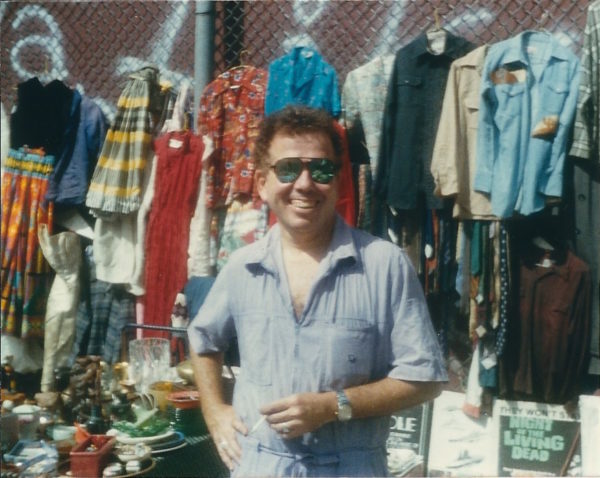
Once he was divorced, Vélez began to make active connections with the LGBTQ community. He served as a leader for the Gay Circles Consciousness Raising Group for almost three years. One evening, after his group ended, Vélez walked past the first meeting of a new organization dedicated to addressing government inaction surrounding HIV/AIDS. He was intrigued.
The group soon had a name: ACT UP, the AIDS Coalition to Unleash Power. Vélez became involved in several ACT UP committees, including the Media Committee and Actions Committee. He was involved in high-profile demonstrations and civil disobedience arrest scenarios that showcased ACT UP’s signature street theatre activism, such as chaining himself in the office of a pharmaceutical company, or covering himself in fake blood to symbolize the lives lost to AIDS because of government negligence.
However, Vélez found his niche with the group’s Latino Caucus, which focused on the raging but neglected epidemic in the Latino community. Significantly, Vélez and his colleagues traveled to Puerto Rico to help organize a local ACT UP chapter in the commonwealth. He was also a founding member of Queer Nation in New York City in 1990.
He was involved in many AIDS educational and service organizations over the years, serving as an administrator and bilingual educator for AIDSMEDS.com for more than a decade. His writing and activism intersected significantly when he moderated a community forum on AIDSMeds.com, where he directed desperate people to lifesaving medical information. Vélez also wrote about the epidemic for numerous community publications, including POZ, Body Positive, and SIDA Ahora. For ten years he moderated the POZ Forum. He took part in aggressive and effective treatment access work with Treatment Action Group, and worked in a New York City HIV clinical trial unit, alerting affected communities to their vulnerability to tuberculosis.
From the 1990s through the 2010s, Vélez returned to his first love of theater by covering the scene for several LGBT magazines, as well as by conducting interviews with jazz greats for All About Jazz and the New York City Jazz Record. He penned liner notes for the CD reissues of several Broadway musical classics, such as Finian’s Rainbow, The Pajama Game, and Saratoga. He also provided liner notes for vocal collections by legends such as Doris Day, Fred Astaire, Ella Fitzgerald, and Artie Shaw. From 1990 to 1992, he taught courses in musical theater at the New School. Among his in-class guests from the golden age of Broadway: Barbara Cook, Sheldon Harnick, Elaine Stritch, John Kander and Fred Ebb. He was included in the anthology Cast Out: Queer Lives in the Theater, a collection focusing on out lesbians and gays currently working on the American stage.
Vélez became a prominent presence on the international AIDS scene for more than two decades, working with co-organizers of the International Conference on AIDS to guarantee the inclusion and active participation of people with HIV. He also served for several conferences as the official liaison to the activist community. He served as a consultant to the Latino Commission on AIDS, and was a guest speaker on HIV/AIDS issues at high schools and colleges across America.
Years ago, when asked how he would like to be remembered, Vélez replied, “As someone who was able to help.”
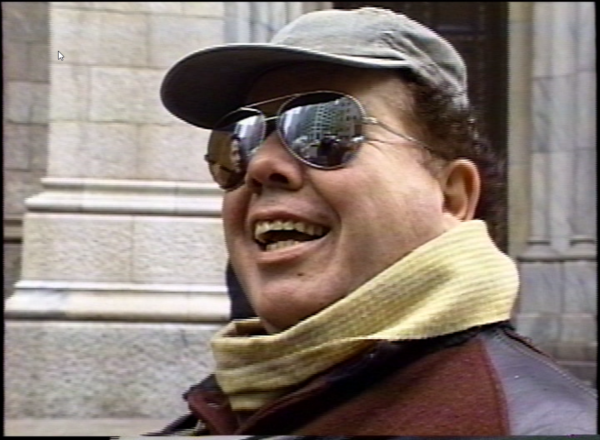
Andy Vélez is survived by his sons Ben and Abe, both of Brooklyn, his daughter-in-law Sarah, his granddaughter, his younger brother Eugene (“Gene’) of Alamo, California, as well as thousands of comrades in the global AIDS and LGBTQ activist communities.
Funeral services will be private. A public memorial service will be held this summer.
Donations in Vélez’s memory may be made to ACT UP New York, Broadway Cares/Equity Fights AIDS, and the Latino Commission on AIDS.
Andy Vélez, presente y pa’lante!
District of Columbia
D.C. police arrest man for burglary at gay bar Spark Social House
Suspect ID’d from images captured by Spark Social House security cameras

D.C. police on Feb. 18 arrested a 63-year-old man “of no fixed address” for allegedly stealing cash from the registers at the gay bar Spark Social House after unlawfully entering the bar at 2009 14th St., N.W., around 12:04 a.m. after it had closed for business, according to a police incident report.
“Later that day officers canvassing for the suspect located him nearby,” a separate police statement says. “63-year-old Tony Jones of no fixed address was arrested and charged with Burglary II,” the statement says.
The police incident report states that the bar’s owner, Nick Tsusaki, told police investigators that the bar’s security cameras captured the image of a man who has frequently visited the bar and was believed to be homeless.
“Once inside, the defendant was observed via the establishment’s security cameras opening the cash register, removing U.S. currency, and placing the currency into the left front pocket of his jacket,” the report says.
Tsusaki told the Washington Blade that he and Spark’s employees have allowed Jones to enter the bar many times since it opened last year to use the bathroom in a gesture of compassion knowing he was homeless. Tsusaki said he is not aware of Jones ever having purchased anything during his visits.
According to Tsusaki, Spark closed for business at around 10:30 p.m. on the night of the incident at which time an employee did not properly lock the front entrance door. He said no employees or customers were present when the security cameras show Jones entering Spark through the front door around 12:04 a.m.
Tsusaki said the security camera images show Jones had been inside Spark for about three hours on the night of the burglary and show him taking cash out of two cash registers. He took a total of $300, Tsusaki said.
When Tsusaki and Spark employees arrived at the bar later in the day and discovered the cash was missing from the registers they immediately called police, Tsusaki told the Blade. Knowing that Jones often hung out along the 2000 block of 14th Street where Spark is located, Tsusaki said he went outside to look for him and saw him across the street and pointed Jones out to police, who then placed him under arrest.
A police arrest affidavit filed in court states that at the time they arrested him police found the stolen cash inside the pocket of the jacket Jones was wearing. It says after taking him into police custody officers found a powdered substance in a Ziploc bag also in Jones’s possession that tested positive for cocaine, resulting in him being charged with cocaine possession in addition to the burglary charge.
D.C. Superior Court records show a judge ordered Jones held in preventive detention at a Feb. 19 presentment hearing. The judge then scheduled a preliminary hearing for the case on Feb. 20, the outcome of which couldn’t immediately be obtained.
District of Columbia
Judge rescinds order against activist in Capital Pride lawsuit
Darren Pasha accused of stalking organization staff, board members, volunteers

A D.C. Superior Court judge on Feb.18 agreed to rescind his earlier ruling declaring local gay activist Darren Pasha in default for failing to attend a virtual court hearing regarding an anti-stalking lawsuit brought against him by the Capital Pride Alliance, the group that organizes D.C.’s annual Pride events.
The Capital Pride lawsuit, initially filed on Oct. 27, 2025, accuses Pasha of engaging in a year-long “course of conduct” of “harassment, intimidation, threats, manipulation, and coercive behavior” targeting Capital Pride staff, board members, and volunteers.
In his own court filings without retaining an attorney, Pasha has strongly denied the stalking related allegations against him, saying “no credible or admissible evidence has been provided” to show he engaged in any wrongdoing.
Judge Robert D. Okum nevertheless on Feb. 6 approved a temporary stay-away order requiring Pasha to stay at least 100 feet away from Capital Pride’s staff, volunteers, and board members until the time of a follow-up court hearing scheduled for April 17. He reduced the stay-away distance from 200 yards as requested by Capital Pride.
In his two-page order issued on Feb. 18, Okun stated that Pasha explained that he was involved in a scooter accident in which he was injured and his phone was damaged, preventing him from joining the Feb. 6 court hearing.
“Therefore, the court finds there is a good cause for vacating the default,” Okun states in his order.
At the time he initially approved the default order at the Feb. 6 hearing that Pasha didn’t attend, Okun scheduled an April 17 ex parte proof hearing in which Capital Pride could have requested a ruling in its favor seeking a permanent anti-stalking order against Pasha.
In his Feb. 18 ruling rescinding the default order Okun changed the April 17 ex parte proof hearing to an initial scheduling conference hearing in which a decision on the outcome of the case is not likely to happen.
In addition, he agreed to consider Pasha’s call for a jury trial and gave Capital Pride 14 days to contest that request. The Capital Pride lawsuit initially called for a non-jury trial by judge.
One request by Pasha that Okum denied was a call for him to order Capital Pride to stop its staff or volunteers from posting information about the lawsuit on social media. Pasha has said the D.C.-based online blog called DC Homos, which Pasha claims is operated by someone associated with Capital Pride, has been posting articles portraying him in a negative light and subjecting him to highly negative publicity.
“The defendant has not set forth a sufficient basis for the court to restrict the plaintiff’s social media postings, and the court therefore will deny the defendant’s request in his social media praecipe,” Okun states in his order.
A praecipe is a formal written document requesting action by a court.
Pasha called the order a positive development in his favor. He said he plans to file another motion with more information about what he calls the unfair and defamatory reports about him related to the lawsuit by DC Homos, with a call for the judge to reverse his decision not to order Capital Pride to stop social media postings about the lawsuit.
Pasha points to a video interview on the LGBTQ Team Rayceen broadcast, a link to which he sent to the Washington Blade, in which DC Homos operator Jose Romero acknowledged his association with Capital Pride Alliance.
Capital Pride Executive Director Ryan Bos didn’t immediately respond to a message from the Blade asking whether Romero was a volunteer or employee with Capital Pride.
Pasha also said he believes the latest order has the effect of rescinding the temporary stay away order against him approved by Okun in his earlier ruling, even though Okun makes no mention of the stay away order in his latest ruling. Capital Pride attorney Nick Harrison told the Blade the stay away order “remains in full force and effect.”
Harrison said Capital Pride has no further comment on the lawsuit.
District of Columbia
Trans activists arrested outside HHS headquarters in D.C.
Protesters demonstrated directive against gender-affirming care

Authorities on Tuesday arrested 24 activists outside the U.S. Department of Health and Human Services headquarters in D.C.
The Gender Liberation Movement, a national organization that uses direct action, media engagement, and policy advocacy to defend bodily autonomy and self-determination, organized the protest in which more than 50 activists participated. Organizers said the action was a response to changes in federal policy mandated by Executive Order 14187, titled “Protecting Children from Chemical and Surgical Mutilation.”
The order directs federal agencies and programs to work toward “significantly limiting youth access to gender-affirming care nationwide,” according to KFF, a nonpartisan, nonprofit organization that provides independent, fact-based information on national health issues. The executive order also includes claims about gender-affirming care and transgender youth that critics have described as misinformation.
Members of ACT UP NY and ACT UP Pittsburgh also participated in the demonstration, which took place on the final day of the public comment period for proposed federal rules that would restrict access to gender-affirming care.
Demonstrators blocked the building’s main entrance, holding a banner reading “HANDS OFF OUR ‘MONES,” while chanting, “HHS—RFK—TRANS YOUTH ARE NO DEBATE” and “NO HATE—NO FEAR—TRANS YOUTH ARE WELCOME HERE.”
“We want trans youth and their loving families to know that we see them, we cherish them, and we won’t let these attacks go on without a fight,” said GLM co-founder Raquel Willis. “We also want all Americans to understand that Trump, RFK, and their HHS won’t stop at trying to block care for trans youth — they’re coming for trans adults, for those who need treatment from insulin to SSRIs, and all those already failed by a broken health insurance system.”
“It is shameful and intentional that this administration is pitting communities against one another by weaponizing Medicaid funding to strip care from trans youth. This has nothing to do with protecting health and everything to do with political distraction,” added GLM co-founder Eliel Cruz. “They are targeting young people to deflect from their failure to deliver for working families across the country. Instead of restricting care, we should be expanding it. Healthcare is a human right, and it must be accessible to every person — without cost or exception.”

Despite HHS’s efforts to restrict gender-affirming care for trans youth, major medical associations — including the American Medical Association, the American Academy of Pediatrics, and the Endocrine Society — continue to regard such care as evidence-based treatment. Gender-affirming care can include psychotherapy, social support, and, when clinically appropriate, puberty blockers and hormone therapy.
The protest comes amid broader shifts in access to care nationwide.
NYU Langone Health recently announced it will stop providing transition-related medical care to minors and will no longer accept new patients into its Transgender Youth Health Program following President Donald Trump’s January 2025 executive order targeting trans healthcare.



